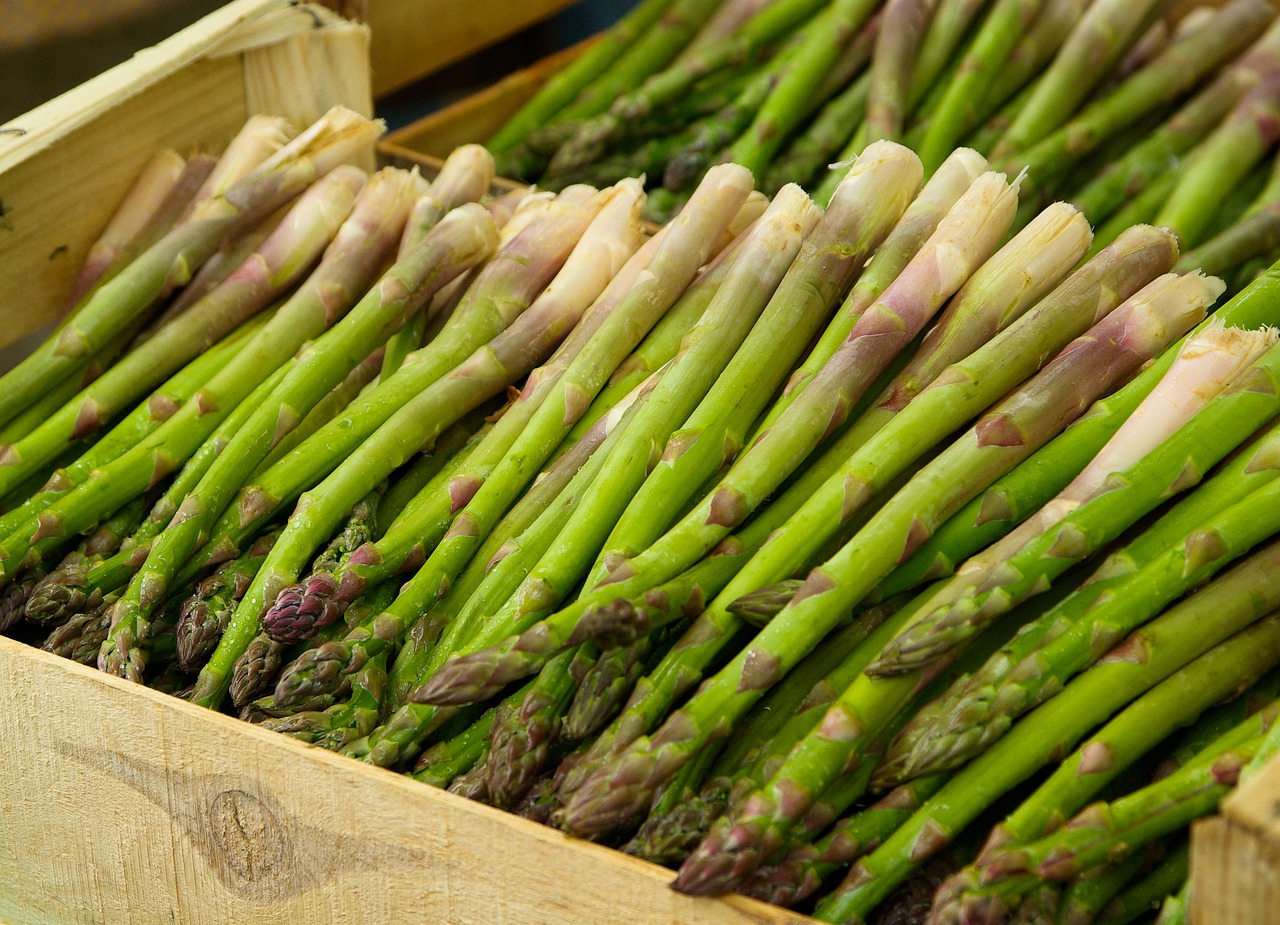Why Am I Craving Asparagus?

Asparagus, a vibrant green vegetable that comes into season in the spring, has been enjoyed for centuries due to its unique taste and texture. But why might someone suddenly find themselves with an intense craving for this vegetable? Let’s delve deeper into the reasons behind this verdant yearning.
Why Am I Craving Asparagus?
1. Nutritional Needs
Our bodies often send signals when they are lacking specific nutrients. Asparagus is rich in vitamins A, C, E, K, and B vitamins. It also contains essential minerals like iron, copper, calcium, protein, and fiber. If you’re deficient in any of these nutrients, your body might be subtly nudging you towards a food source that can replenish them.
Furthermore, asparagus is a source of folate, which is essential for DNA replication and repair. People who are deficient in folate or have higher needs, such as pregnant women, might find themselves gravitating towards folate-rich foods like asparagus.
2. Alkalinity Balance
Asparagus is an alkaline food, which means it can help balance the body’s pH levels. A diet high in acidic foods can lead to a variety of health issues, including low energy, susceptibility to illnesses, and more. Consuming alkaline foods like asparagus can help restore this balance.
When the body is too acidic, it will naturally crave alkaline foods to level out. Asparagus, being one of the most alkaline vegetables, may be on the top of that craving list when our pH is off.
3. Digestive Health
One of the standout features of asparagus is its fiber content, particularly its soluble and insoluble fiber. This type of fiber aids in digestion and can prevent constipation. A craving for asparagus could be the body’s way of seeking relief from digestive discomfort.
Moreover, asparagus contains a type of carbohydrate called inulin, which acts as a prebiotic. This means it feeds the beneficial bacteria in our gut, promoting a healthy digestive system.
4. Detoxification
Asparagus is known to have diuretic properties. This means it can help flush out excess salts and fluids from the body. If you’ve had a salty meal or consumed a lot of processed foods, your body might be urging you to eat asparagus to help detoxify.
On top of its diuretic properties, asparagus is packed with antioxidants. These antioxidants help neutralize harmful free radicals in the body, assisting in the detoxification process.
5. Mood and Mental Well-being
There is a link between the nutrients in asparagus and brain health. The folate in asparagus works alongside vitamin B12 to prevent cognitive decline and lift one’s mood. If you’re feeling down or mentally fatigued, a craving for asparagus could be your body’s way of seeking a natural mood booster.
Furthermore, asparagus contains tryptophan, an amino acid that can help produce serotonin, the “feel good” neurotransmitter. This can lead to improved mood and better sleep.
6. Pregnancy and Fertility
For women who are pregnant or trying to conceive, asparagus might become a sought-after food. This is due to its high content of folate, which is crucial during early development to prevent neural tube defects.
Beyond pregnancy, the vitamin K in asparagus is important for bone health and can play a role in supporting fertility for both men and women.
7. Anti-Inflammatory Properties
Chronic inflammation is at the root of many diseases. Asparagus has various anti-inflammatory compounds that can help reduce inflammation in the body. If your body is experiencing inflammation, it might drive you towards anti-inflammatory foods like asparagus.
Moreover, the saponins found in asparagus have been linked to immune-boosting and anti-inflammatory properties. This could be another reason behind your craving.
8. Aphrodisiac Qualities
Historically, asparagus has been considered an aphrodisiac. While scientific evidence might not be robust, the combination of vitamin B6 and folate in asparagus can boost feelings of arousal. The increased blood flow from its rich array of vitamins and minerals can also play a role.
If you’re seeking to enhance intimacy or improve reproductive health, your body might be signaling for a boost by craving asparagus.
9. Variety in Diet
Our bodies thrive on variety. If you’ve been consuming a monotonous diet, you might find yourself craving different foods simply for the sake of diversity. Asparagus, with its unique taste and texture, could be a refreshing change from the norm.
Moreover, introducing a variety of foods into your diet ensures a broader range of nutrients, allowing the body to function at its best.
10. Seasonal Changes
Seasonal eating can influence our cravings. As the seasons change, especially during spring when asparagus is at its peak, your body might be responding to the environment around you by craving seasonal produce.
Eating in sync with the seasons can have benefits like better nutrient absorption and supporting local agriculture. Your body, in its innate wisdom, might be pushing you towards this beneficial practice.
Craving Asparagus During Pregnancy
Pregnancy is a unique period in a woman’s life where the body undergoes significant changes, and the nutritional needs adjust accordingly. During this time, women may experience specific cravings that are a combination of hormonal fluctuations and the body’s way of signaling for certain nutrients. Asparagus is rich in essential vitamins and minerals, including folate, which is critical during pregnancy to prevent neural tube defects in the developing fetus. As such, expecting mothers may find themselves particularly drawn to asparagus as their bodies seek out foods that provide vital nutrients for their unborn child.
Additionally, the diuretic properties of asparagus can be beneficial for pregnant women who may be retaining more fluid than usual. Water retention is common during pregnancy, leading to swelling in the hands, feet, and ankles. Consuming asparagus can help flush out excess fluids, alleviating some of the discomfort associated with swelling. Moreover, the fiber content in asparagus aids in digestion, which can be a relief for pregnant women experiencing constipation, a common pregnancy-related issue.
Why Am I Craving Pickled Asparagus?
Pickling, a method that has been used for centuries to preserve foods, enhances the flavor profile of the original item, often adding a tangy, salty, and sometimes sweet element to it. When it comes to pickled asparagus, the briny taste combined with the distinct flavor of asparagus creates a delightful fusion that many find irresistible. The tanginess of pickled foods, in general, can be particularly appealing if one’s palate is seeking strong, pronounced flavors. Furthermore, our taste preferences can sometimes be influenced by our environment, past experiences, or even by the microbial composition of our gut.
Another reason for craving pickled asparagus could be related to the body’s need for certain minerals. Pickled foods, due to their salt content, are a source of sodium. While excessive salt intake is not recommended, sodium is an essential mineral that our bodies need to maintain fluid balance, nerve transmission, and muscle function. If you’ve been sweating more than usual or perhaps not consuming enough sodium in your diet, a craving for salty foods like pickled asparagus might emerge. Additionally, fermented and pickled foods contain probiotics, which are beneficial for gut health. If the body is experiencing digestive disturbances, it might crave pickled items to restore a healthy balance in the gut flora.
In conclusion, our cravings often serve as signals or messages from our body. If you find yourself longing for asparagus, it could be due to any of these reasons. Embracing these cravings and understanding their origins can lead to a more harmonious relationship with food and better overall health.





